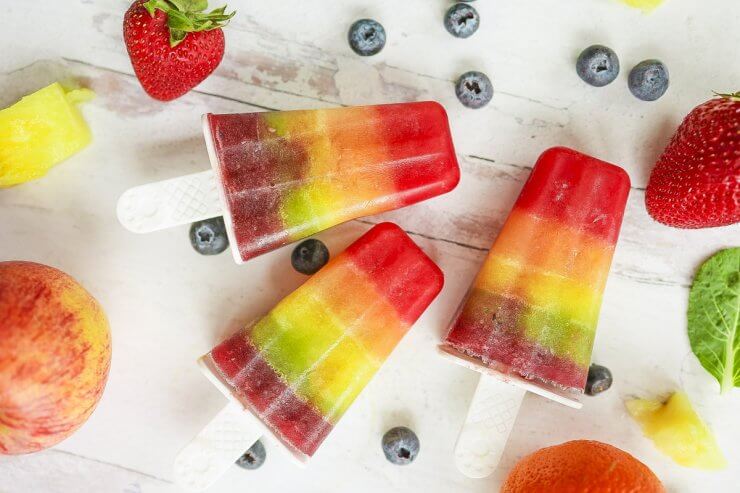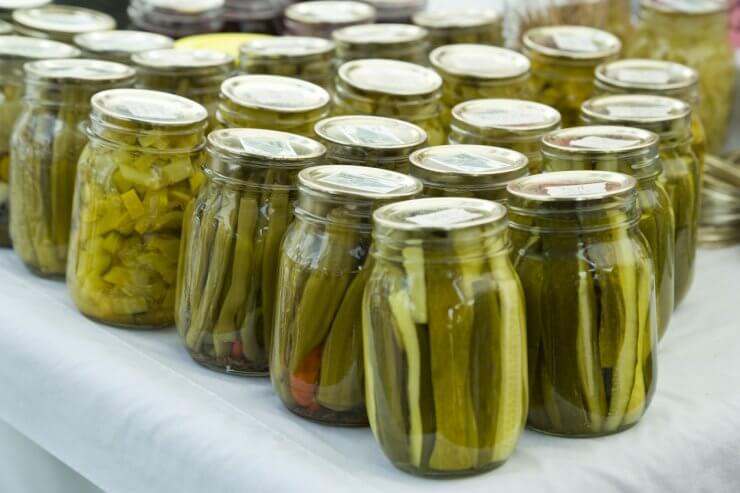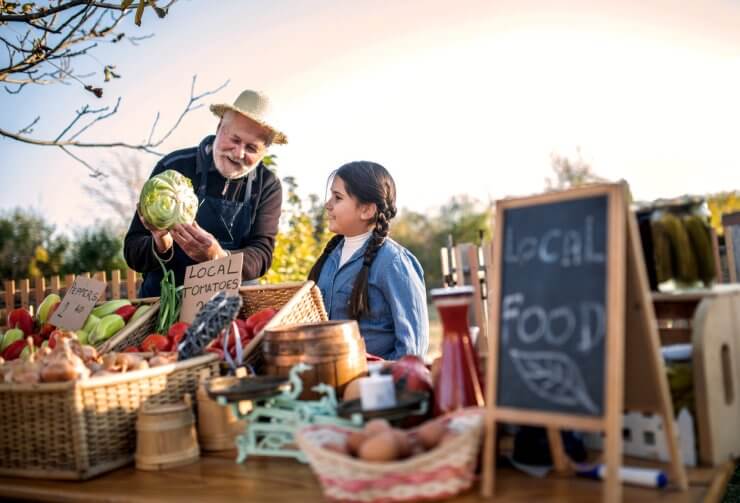
Empower young entrepreneurs by kickstarting a farm stand adventure and watching their confidence grow!
You know what’s super awesome and fun for your kids? Helping them kickstart their very own business! It’s like a secret recipe for teaching them all sorts of cool stuff–leadership, social skills, money management, and a major boost to their confidence! If you already have a garden, or if they do, why not help them start a farm stand?
Picture your kiddo calling the shots, making decisions like a pro, and leading the charge! It’s a fantastic way for them to learn how to take charge and be responsible, setting them up for success later in life.
Oh, and let’s not forget about the social skills they’ll be mastering. Interacting with customers, working with friends, and even haggling with suppliers—which may actually be you!
And you know what? This lemonade stand adventure is like a mini crash course in finance too. They’ll be counting coins, managing expenses, and seeing how money can grow (cha-ching!) with smart choices.
But here’s the best part–watching their confidence soar! Seeing their hard work pay off and those smiles on their faces? Priceless. They’ll feel like they can conquer the world!
Starting a business, even as simple as a lemonade stand, is the ultimate life-changing experience for your kiddos. They’ll become little legends in the neighborhood. Cheers to their bright future!
Let’s talk about age-appropriate farm stand ideas so that you get the most out of this experience as your children grow.
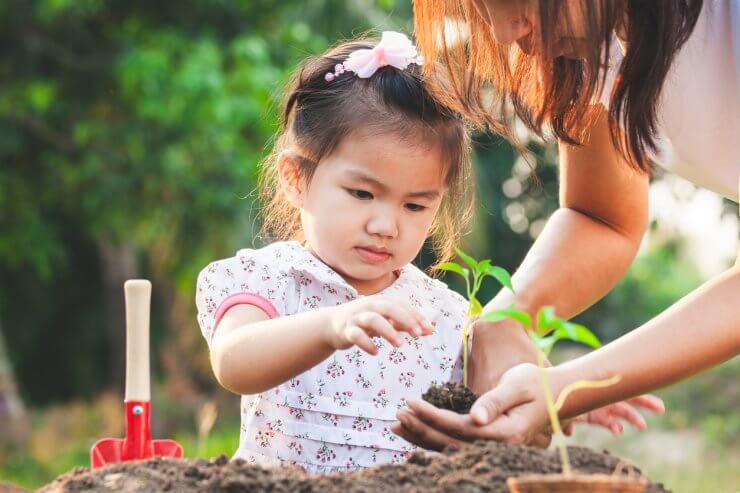
1. Seedlings and plants (age 2+)
Having a mix of ages in your kids’ farm stand is fantastic because even the adorable two-year-olds can get in on the action! Let them have a blast planting seedlings that can be sold when spring rolls around. It’s a win-win for everyone! The younger ones and the older kids will be thrilled to see the results of their hard work, and guess what? Your lovely community, who’s already into buying seedlings in the spring, will be absolutely delighted to support these little green thumbs. It’s all about coming together and enjoying the fruits of their labor–literally!
Skills learned:
- Fine motor skills from planting seeds
- Visual motor skills from pouring soil into containers
- Measuring soil
- Counting seeds
Visit our premium gardening guides to see how to plant and grow a variety of fruits and vegetables.
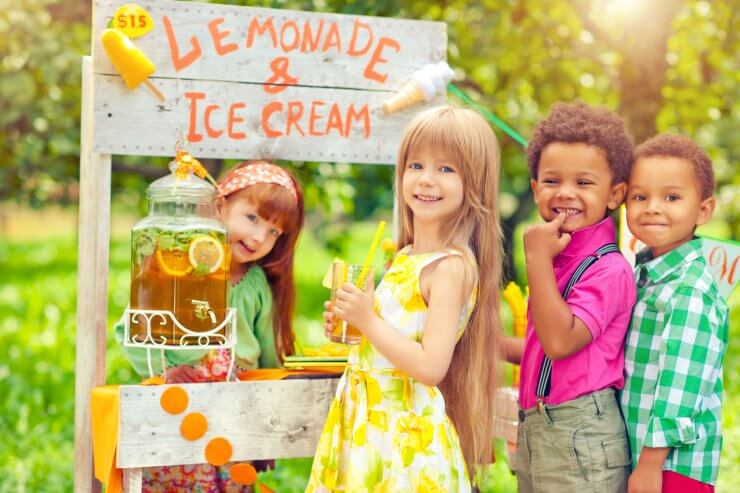
2. Fresh juices (age 3+)
Starting with the basics, if you have a juicer, you can make some incredible juices. You can make anything from simple lemonades and orange juices to wheatgrass green juices. This is perfect for age 3+.
Skills learned:
- Chopping
- Peeling
- Fine motor skills using a blender or juicer
- Pouring (into containers)
Fresh juice recipes you can use:
3. No sugar-added popsicles (age 3+)
Making popsicles is like making jam, but without all the added sugar! If you have a juicer, it will make it easier, but if you don’t, you can just use a blender. If you want the popsicles to be a little more juicy than pulpy, either use cheesecloth to strain out the pulp, or add grape juice.
Skills learned:
- Picking fruits at ripeness
- Washing fruits
- Chopping fruits
- Using a blender or juicer
- Patience (freeze time!)
While you can easily make single-flavor popsicles, you can also try our All-Natural Homemade Rainbow Popsicle Recipe.
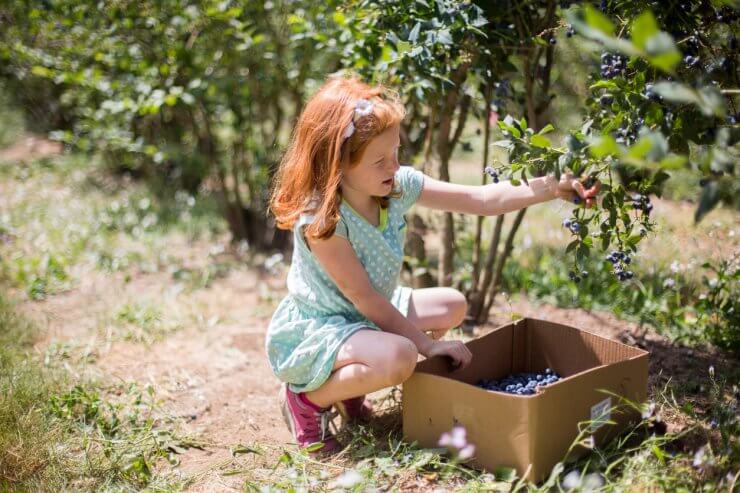
4. Fresh produce (age 3+)
If you plan far ahead, your kid(s) can pick which fruit, veggies, and herbs they want to plant and sell later on. This will get them enthusiastic about the whole growing season, from seed to stand.
Skills/ideas learned:
- Germinating and planting seeds (if possible)
- Colors (i.e. ask them to only pick red tomatoes)
- Pulling fruits/vegetables at ripeness
- Washing fruits/vegetables
- Curing, if necessary (i.e. garlic)
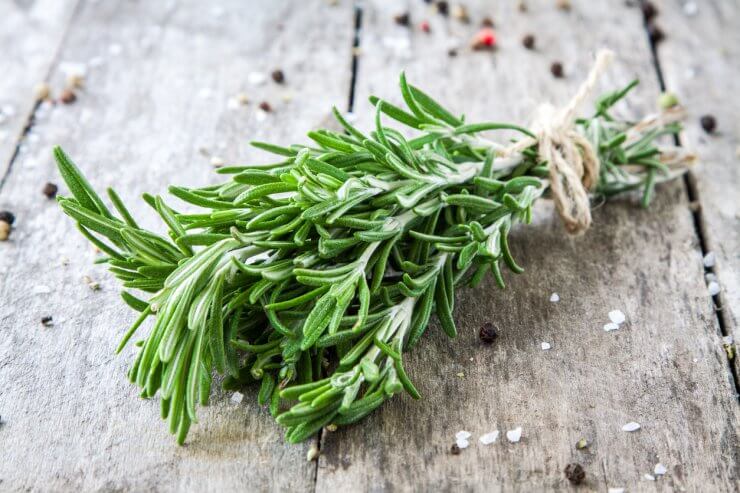
5. Herb and edible flower bouquets (age 3+)
Skills/ideas learned:
- Smells and flavors of different herbs
- Herbs that flower
- Edible flowers
- Tying bows (if placing in small decorated ball jars for display)
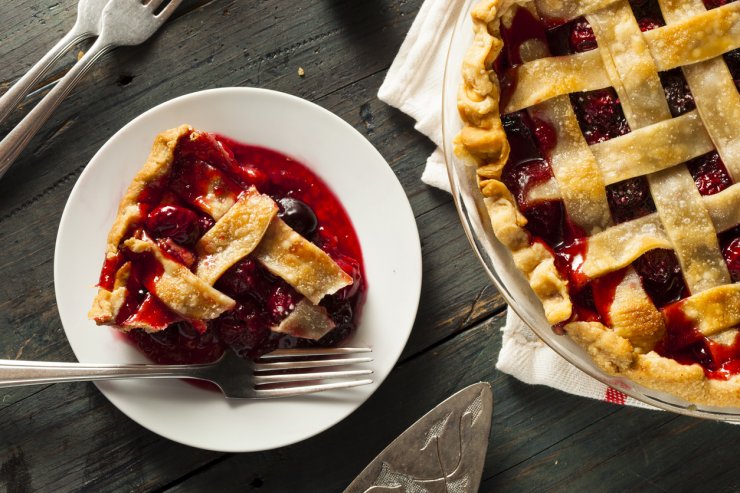
6. Pies (age 5+)
If you grow strawberries, rhubarb, peaches, apples, raspberries, or any other traditional pie-favorites, then pies are another great addition to your kids’ farm stand. Who doesn’t love pie? Sell them whole, or by the slice!
Skills/ideas learned:
- Picking fruit at ripeness
- Washing fruits
- Chopping fruits
- Basic oven skills and safety
- Measuring ingredients
- Making and rolling dough
- Patience (while it bakes!)
Pie recipes you can make:
- Cherry Pie
- Grape and Pear Pie
- Blackberry Chocolate-Chip Pie
- Easy Peach Pie
- Classic Blueberry Pie
- Gooseberry Pie
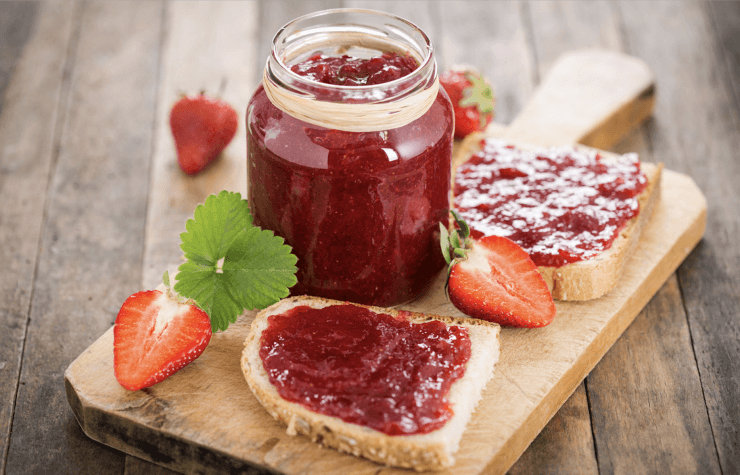
7. Jams (age 8+)
Jams are typically made over the stove, so we suggest jams for the older age group, but if you have a pre-schooler and an older child, for example, they can help with different parts. Younger children can chop and wash berries, while older kids can cook and can the jams. Fruit jams last a few weeks in the fridge because they have so much sugar in them so you don’t need to can them, but you have to keep them refrigerated if you don’t.
Skills/ideas learned:
- Picking berries at ripeness
- Washing fruits
- Chopping fruits
- Basic stove skills and safety
- Measuring ingredients
- The chemistry of canning (i.e. why we use lemon juice, etc.)
Jam recipes you can use:
8. Pickles (age 8+)
Unless you’re making cold refrigerator pickles, pickles that are properly canned are better for older kids who can be safe and participate in the canning process.
Skills/ideas learned:
- Picking cucumbers and other pickling veggies at peak ripeness
- The chemistry of canning (i.e. why we use salt, lemon juice, etc.)
- Flavoring (spicy, garlicky, etc.)
- Measuring ingredients
Pickle recipes you can use:
- Quick Pickled Cucumbers (Refrigerator Pickles)
- Dilly Beans
- Okra Pickles with a Twist
- Avocado Pickles
- Perfect Pickled Gooseberries
- Pickled Ginger
- Pickled Ginger Carrots
Starting a kids’ farm stand is a lot of fun for everybody involved. Every year my daughter talks about what she’ll sell at her roadside farm stand.
Do you have any other ideas?


 Previous
Previous
